Market Data

January 7, 2022
Global Steel Production Contracted in November
Written by David Schollaert
World crude steel production slipped in November, contracting for the fifth time over the past six months. Steelmakers around the world produced an estimated 143.3 million metric tons of crude steel in November, down 1.6% or 2.4 million tons from the prior month, according to World Steel Association (worldsteel) data.
Steel production has been trending down since seeing repeated record-breaking output from March through May. The downtrend has been accentuated by aggressive production cuts in China, which saw a 3.2% decrease or 2.3 million metric tons less in November versus the prior month.
November’s total was the lowest output all year and the second-lowest monthly output in more than two years. At 143.3 million metric tons, it nearly rivaled the low mark of 136.9 million tons seen in April 2020 when the globe was struggling with the first COVID-19 surge.
Year-to-date, world crude steel production totaled 1.746 billion metric tons, up by 4.4% compared with the same period in 2020. Production was also up 3.3% when compared to the same pre-pandemic period in 2019.
The U.S. remained the fourth-largest crude steel producer in the world in November, accounting for 7.2 million metric tons or 5.0% of the global total. U.S. production in November was down 4.0% from the prior month or 300,000 metric tons. Compared with the same month last year when the economy was still struggling with COVID disruptions, November’s production was an improvement of 17.6%, and up 1.6% compared to the pre-pandemic period in 2019.
U.S. production through the first 11 months of 2021 totaled 78.5 million metric tons, 18.6% higher than the same period one year ago but still 2.4% or 1.970 million metric tons behind pre-pandemic levels from 2019.
China produced nearly half of the world’s steel, but edged below the halfway mark for only the second time since March 2018. At 48.8% or an estimated 69.3 million metric tons in November, Chinese production was down 3.2% month on month, and down 20.9% when compared with November 2020.
Shown below in Figure 1 is the annualized monthly global steel production on a three-month moving average (3MMA) basis and capacity utilization since January 2000 based on data from worldsteel, while Figure 2 shows the year-over-year growth rate of global production on the same 3MMA basis since January 2013. Mill capacity utilization in November on a 3MMA basis was 70.6%, down 2.2 percentage points from the month prior. On a tons-per-day basis, production in November was 4.77 million metric tons, largely unchanged month on month, but more than 1 million tons off May’s record rate of 5.813 million metric tons, and the lowest daily output since April 2020. Growth on a three-month moving average through November on a year-over-year basis was -9.6%, a collapse from the 18.4% expansion seen in May.
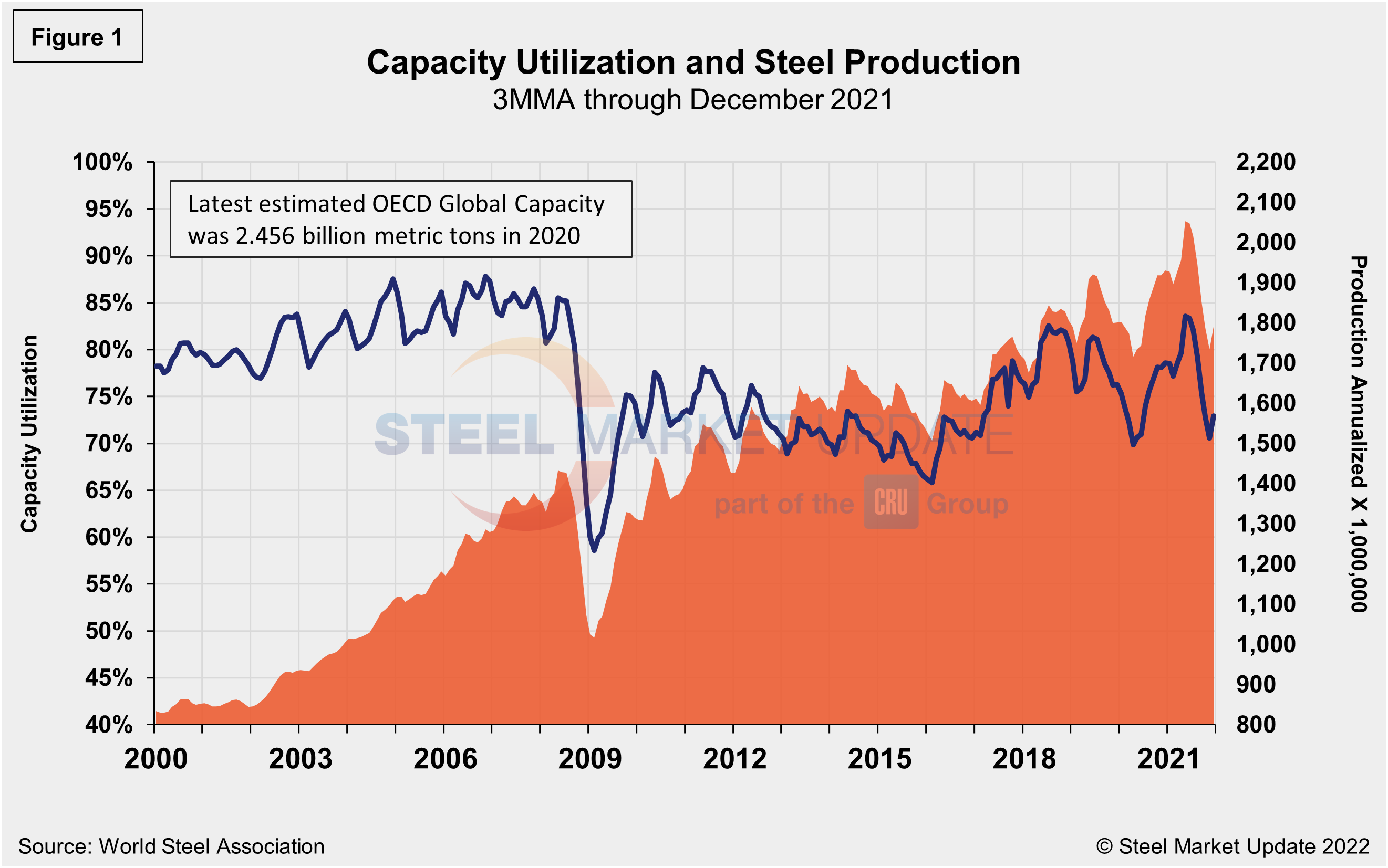
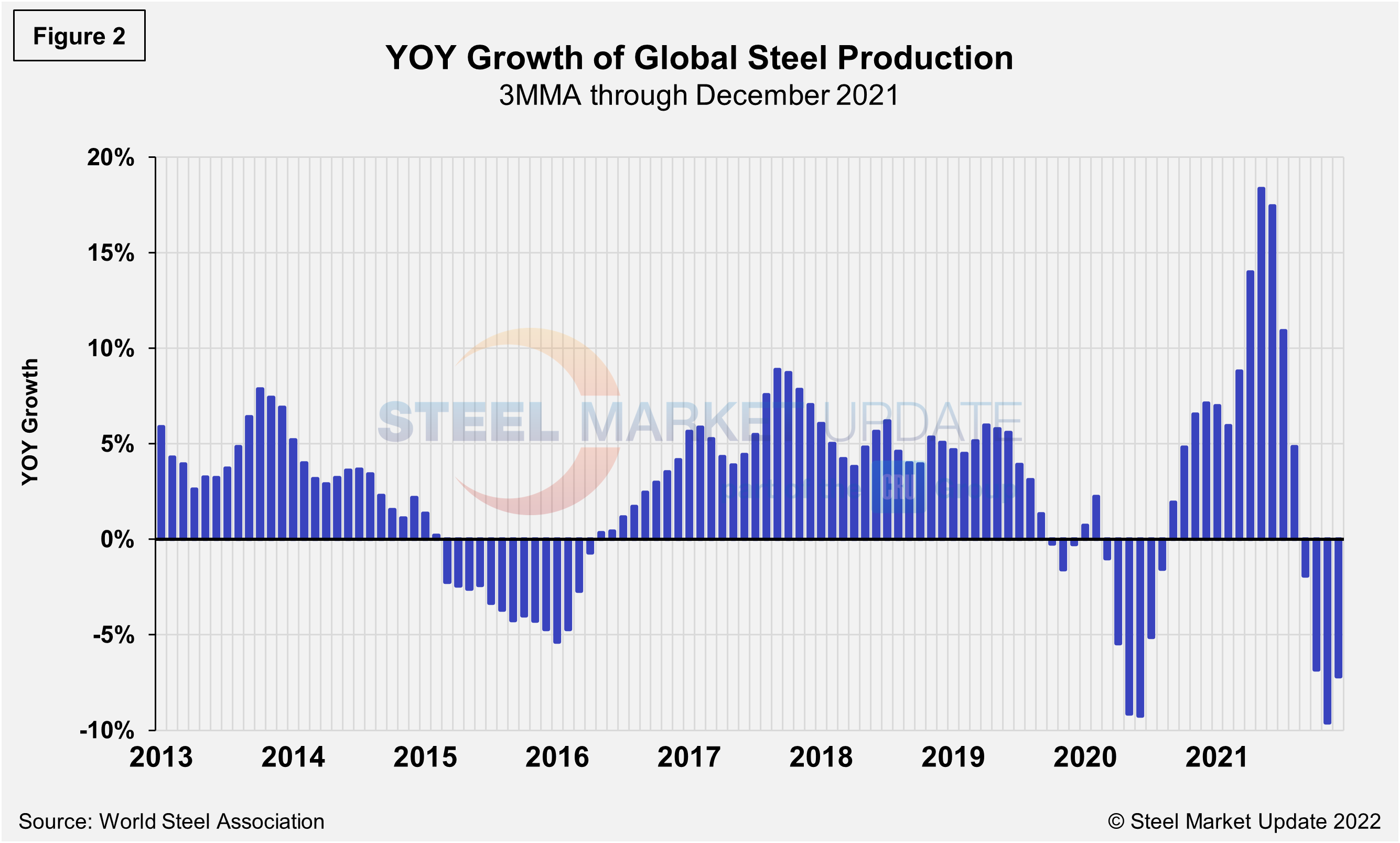
Displayed in the table below is global production broken down into regions, the production of the top 10 nations in the single month of November, and their share of the global total. It also shows the latest three months and 12 months of production through November with year-over-year growth rates for each period. Regions are shown in black font and individual nations in gray. World steel production overall fell 8.4% in three months, a significant deceleration from the 17.9% growth just five months prior. Over 12 months through November, though, growth was 5.2%, down 1.1 percentage points from the same period in October. The market has not maintained positive momentum, as the three-month growth rate has been lower than the 12-month growth rate for four straight months.
The table shows that North American production was up 16.6% in the three months through November, and up 15.7% year on year. The positive momentum in the North American market is significant as the economy continues to battle the pandemic. More importantly, when compared to the same pre-pandemic period in 2019, present output is up 2.6%.
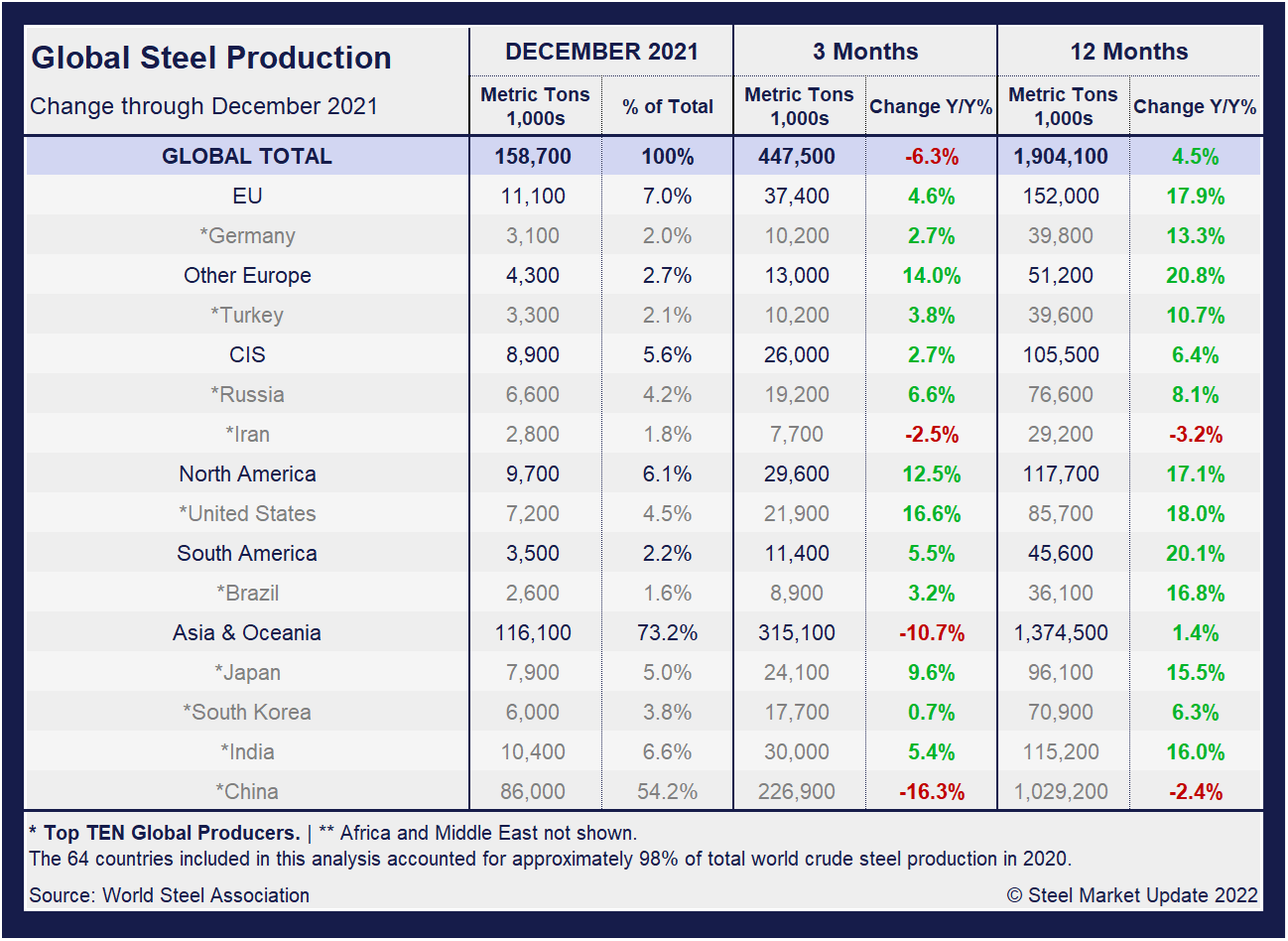
China’s Crude Steel Production
China’s monthly steel production was estimated at 69.3 million metric tons in November, down from 71.6 million metric tons the month prior. The 2.3-million-ton decrease month-on-month marks the sixth consecutive decline following repeated record-breaking months of crude steel output, reaching an all-time high of 99.5 million metric tons in May.
On a 3MMA basis (Figure 3), the annual rate of China’s crude steel production had maxed out at 1.123 billion metric tons in September 2020, then dipped month on month through February. March through May were the first increases since last September, setting a new high of 1.166 billon metric tons in May. November’s total fell to 858.8 million metric tons, falling again for the sixth time in as many months. China’s annual capacity is presently 1.128 billion metric tons, and its annual capacity utilization slipped to 91.7% in November, down from its all-time high of 98.4% in June.
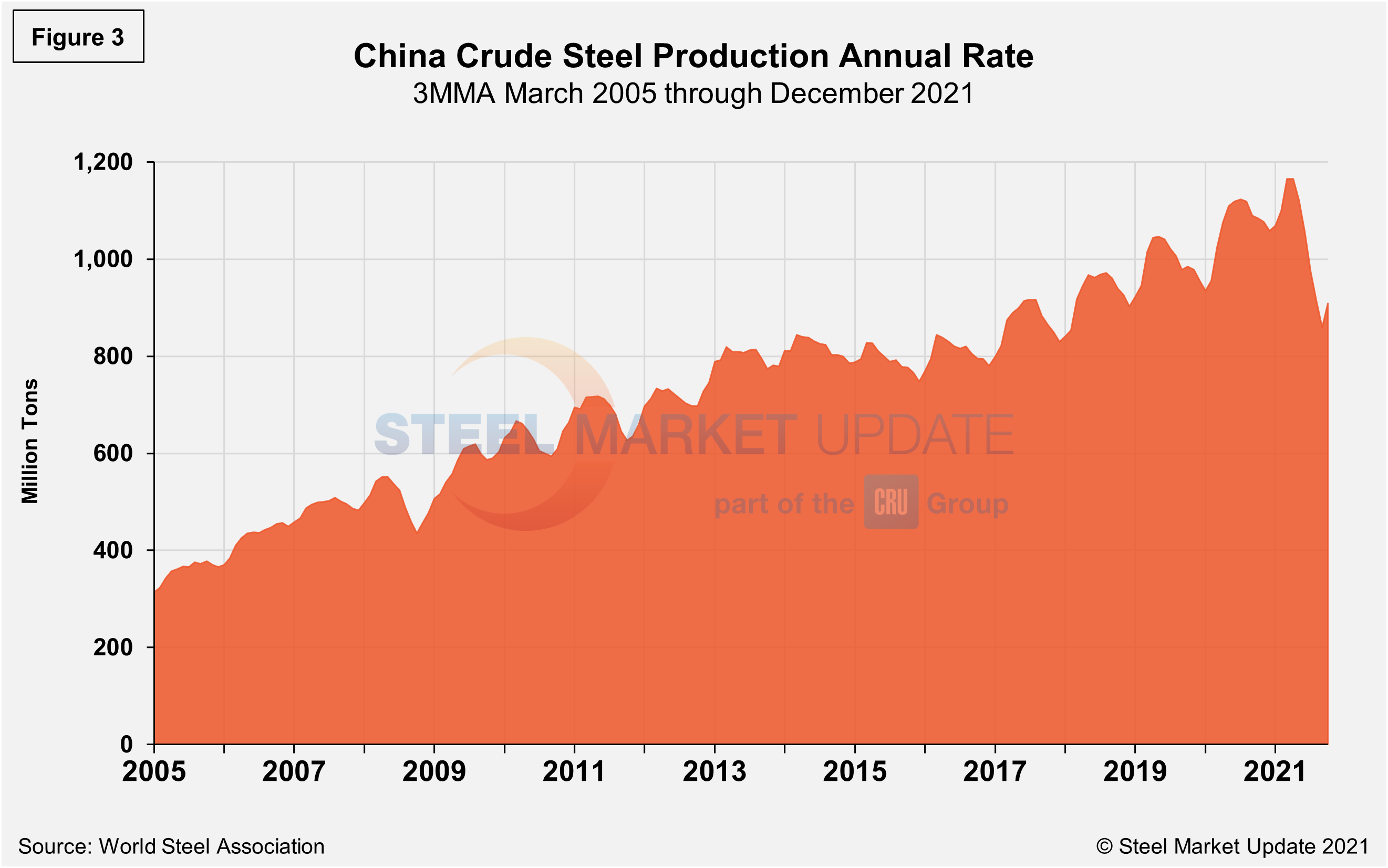
The fluctuations in China’s steel production since April 2013 are shown in Figure 4, while Figure 5 shows the growth of global steel excluding China, both on a 3MMA basis. From November 2020 through November 2021, the rest of the world’s production rose sharply, reaching a peak of 38.0% in April. Since then, the rate for the rest of the world’s annual production had decreased sequentially to just 4.2% in October, rebounding slightly to 4.8% in November. China’s annual growth rate was -21.2% in November, a decrease from -18.2% in October, and a complete turn from a high of +15.1% in April. The sharp downturn in steel production continues to be driven by Chinese cutbacks. The reductions are attributable to power shortages resulting from high coal prices and the Chinese government’s efforts to curb harmful air emissions from the steel industry. The trend should continue for the foreseeable future, especially during the upcoming Lunar New Year and Winter Olympics in February.
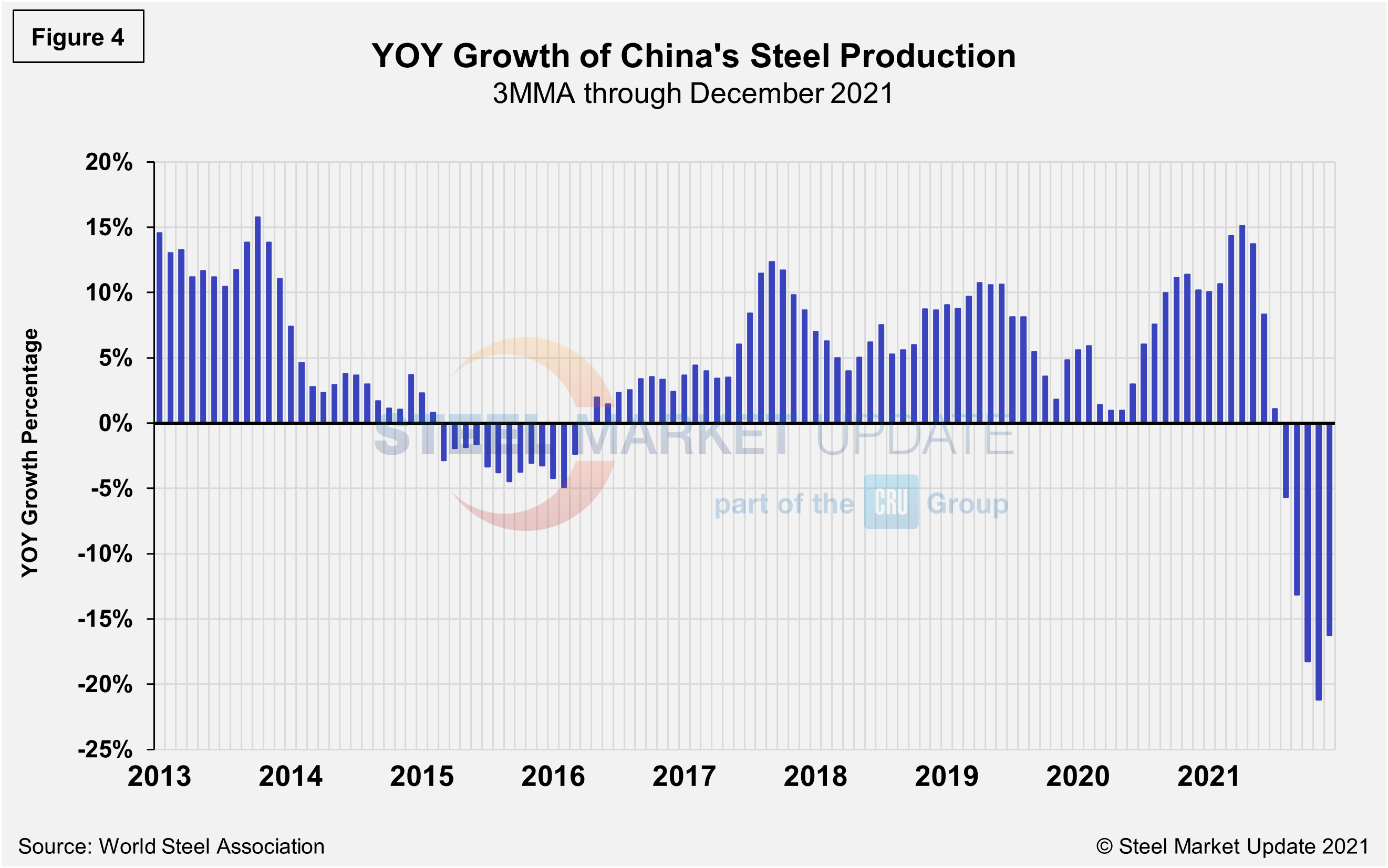
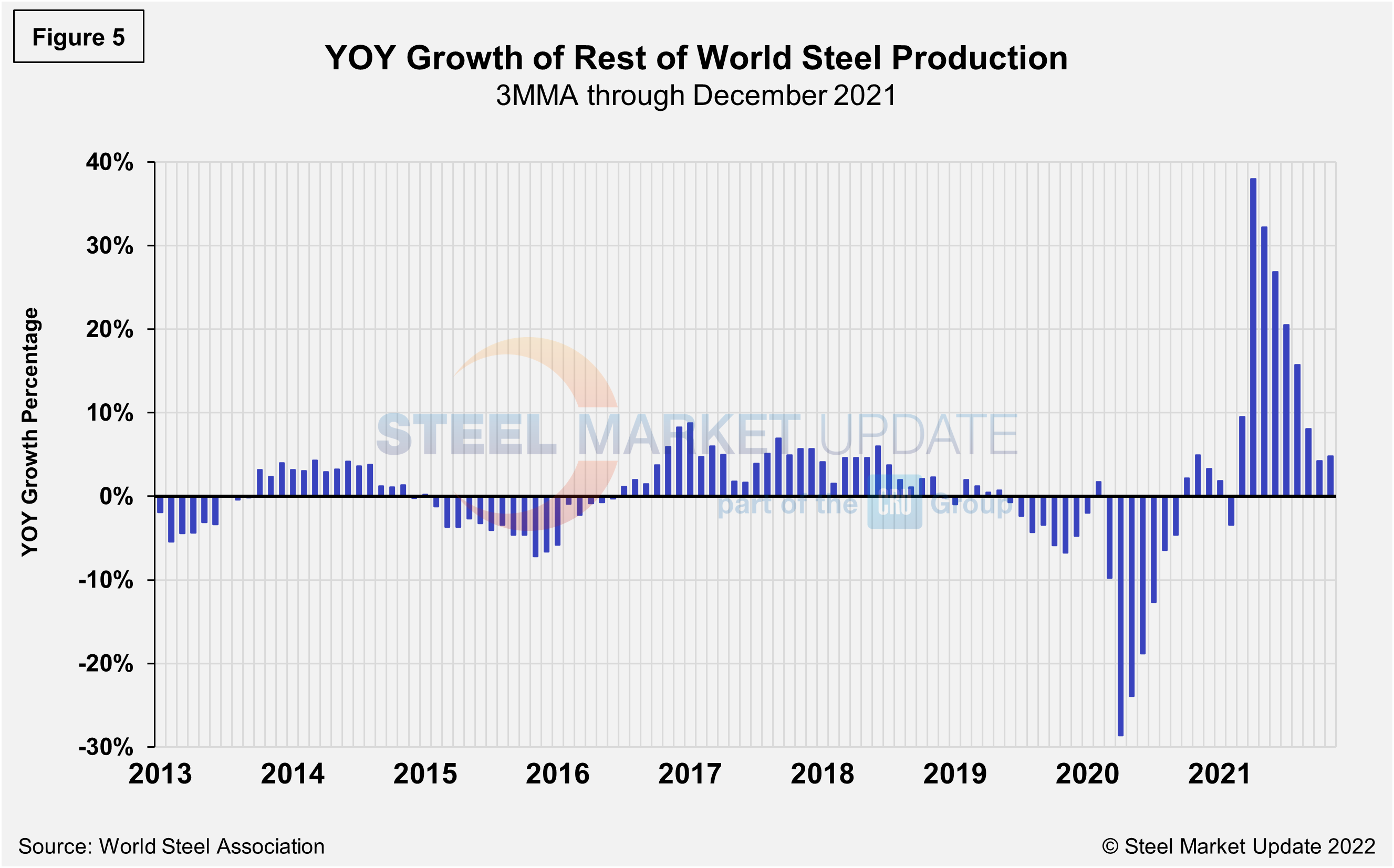
By David Schollaert, David@SteelMarketUpdate.com







